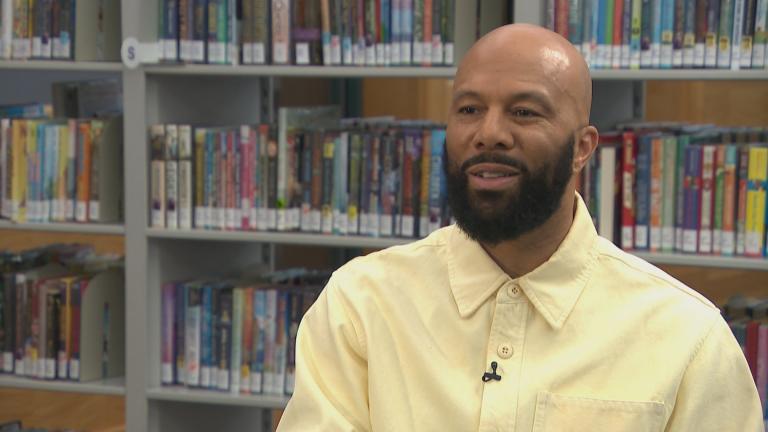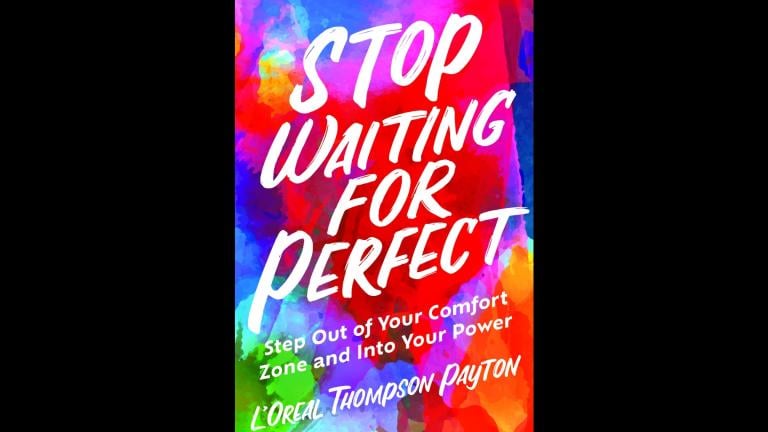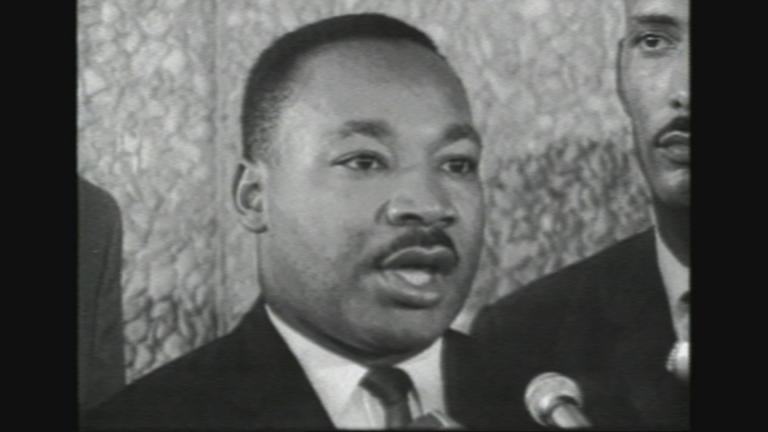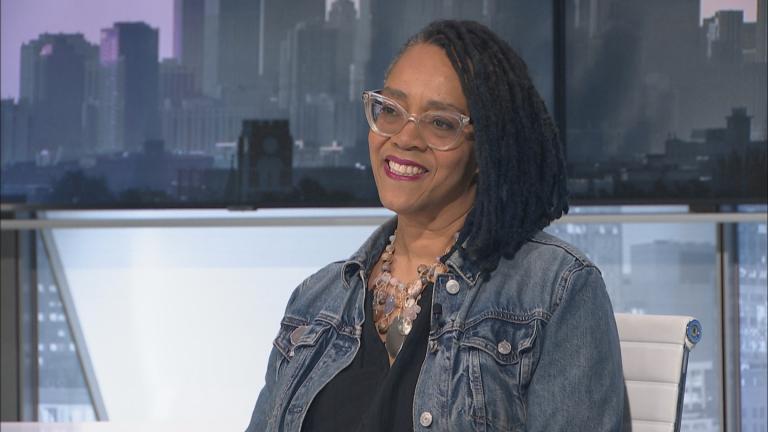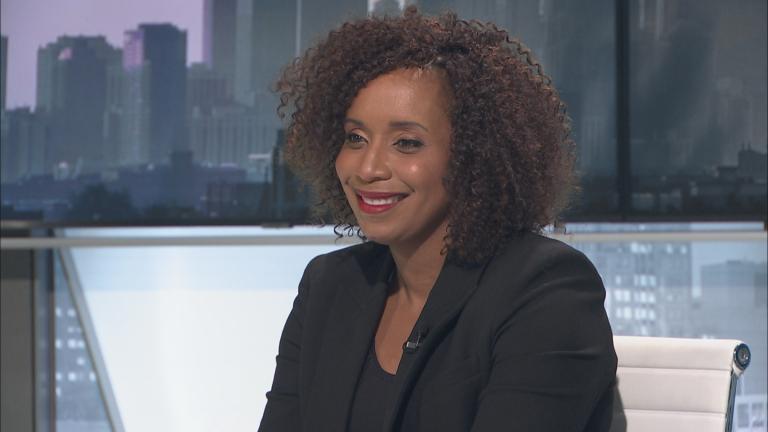Breaking intergenerational cycles of pain takes self-examination and self-love.
In “Nobody Knows The Trouble I’ve Seen: The Emotional Lives of Black Women,” author Inger Burnett-Zeigler examines the experience of stress, trauma and unacknowledged emotional suffering Black women have faced for generations, while offering a new way of being strong that includes being comfortable with vulnerability.
Burnett-Zeigler, a licensed clinical psychologist and associate professor in the Department of Psychiatry and Behavioral Sciences at Northwestern University’s Feinberg School of Medicine, weaves into her book personal stories along with those from loved ones and even her clients.
“I saw so many Black women coming into my therapy office that were having these common experiences of chronic stress related to caregiving responsibilities, work, finances and trauma experiences,” Burnett-Zeigler said. “They were weighed down and feeling like they were the only ones going through these difficult experiences because everyone else seemed like they had it all together.”
But Burnett-Zeigler is hopeful. She believes this is an exciting time for mental health in general and for the Black community, specifically.
“COVID created this global stressor where most people have been stressed over the last 18 months,” Burnett-Zeigler said. “When everybody is going through something at the same time, there’s less stigma attached to it.”
Below, an excerpt from “Nobody Knows The Trouble I’ve Seen.”
 Everywhere that we turn, we’re surrounded by beautiful, intelligent, strong Black women. I’m sure that you can name many in your own life. In fact, you’re probably one of them. Today’s strong Black women are grinding at work and climbing professional ladders, at every event, hair laid, nails done, dressed to perfection and nowhere is a trace of trouble to be found. They are sitting next to you at church, volunteering at community events, and at your book or wine club. They are doing whatever they need to do to take care of their children and extended family, with or without the help of a partner. They are working multiple jobs, trying to make it in a system designed to prevent them from getting ahead. Strong Black women are not just the backbone of society, they are its breath and its heartbeat.
Everywhere that we turn, we’re surrounded by beautiful, intelligent, strong Black women. I’m sure that you can name many in your own life. In fact, you’re probably one of them. Today’s strong Black women are grinding at work and climbing professional ladders, at every event, hair laid, nails done, dressed to perfection and nowhere is a trace of trouble to be found. They are sitting next to you at church, volunteering at community events, and at your book or wine club. They are doing whatever they need to do to take care of their children and extended family, with or without the help of a partner. They are working multiple jobs, trying to make it in a system designed to prevent them from getting ahead. Strong Black women are not just the backbone of society, they are its breath and its heartbeat.
The strong Black woman can be seen on big and small screens or one click away on social media. Political leaders like Shirley Chisholm, Auntie Maxine, and Michelle Obama; literary icons like Gwendolyn Brooks, Octavia Butler, and Toni Morrison; athletic champions like Althea Gibson and Serena Williams; dynamic actresses like Cicely Tyson, Angela Bassett, and Regina King; and TV moms like Georgia Evans and Clair Huxtable. Crooners who sang such as Aretha Franklin, Nina Simone, and Mary J. Blige. And, representing business leaders, Ursula M. Burns, Debra Lee, and Mellody Hobson. They are also those in our own families whose names may be lesser known, like my grandmother and mother, my first strong Black women examples; the women who mentor me at work; and, of course, my girlfriends.
From a distance, strong Black women seem invincible. Everything they set out to accomplish, they achieve. They bounce back stronger from whatever threatens to get in their way. Their head is always held up high, with style and a smile. If you step out of line and need to be put back in your place, they can do that too. Above all, they never forget to give praise and honor to God for all that he has done for them. We look up to these women as our role models and for inspiration. Their strength makes us believe that the possibilities available to us are limitless.
But, as strong Black women, you know best that it isn’t always easy to be strong. The world is out here testing us every day, be it at home, work, or just walking down the street. My grandmother taught my mother, and my mother taught me, to deal with hurt, disappointment, and loss by wiping my tears away, keeping my head up and keeping going. It ain’t the first time you’ve been hurt and it won’t be the last, she would say. My mother reminded me early and often, Life ain’t fair, so don’t expect it to be.
Society puts pressure on us to be everything to everybody—to be superwomen—and we accept the charge. We are constantly pouring out and rarely allow ourselves to receive the care we so urgently need. We fight tooth and nail to defy the negative expectations people have of us and to prove our worth. And yet, it seems like it’s never enough.
In spite of our difficult circumstances, Black women are masters at maintaining a cool indifference and presenting ourselves as having it all together. As soon as we step out of the house, we put our game face on—our mask. This mask is our protection from all of the historical trauma and societal ills—racism, sexism, victimization—that weigh us down. It tries to keep the outside hurt from getting in and the inside hurt from getting out.
Often the mask is a façade and doesn’t really reflect what we’ve been through or how we’re feeling. Although we generally accept the label of strong Black woman with pride, on the other side of the mask are stress, anxiety, and depression that lead to unhealthy behaviors such as emotional eating, poor sleep, and neglecting selfcare. The mask allows us to show only a fraction of our true selves to the world. We wear it as a way of coping with our pain. It’s our survival tactic. But is it really serving us? I don’t think so. In fact, I believe the strong Black woman mask is preventing us from being our authentic and abundant selves.
When all forms of suffering are considered, it’s hard to find a Black woman who hasn’t experienced some form of trauma. Yet if you don’t look closely, or ask the right questions, you would look right past them. Black women have been pushing through and going through the motions for so long that suffering has become the norm. Far too often we have coped with our pain by turning away from it, avoiding or denying it rather than looking at it closely and handling it tenderly.
Excerpt from Nobody Knows the Trouble I’ve Seen by Inger Burnett-Zeigler. Reprinted with permission of the publisher, Amistad, an imprint of HarperCollins. Copyright © 2021 by Inger Burnett-Zeigler.


